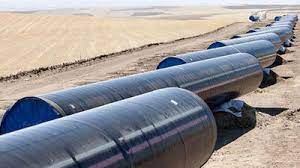Will we meet climate change obligations?

Parliament passed the National Climate Change Bill 2020 to implement the climate change response measures in line with resolutions from international conventions like the Paris Agreement, the Kyoto Protocol and the UN Framework Convention on Climate Change.
The Bill once assented into law is expected to provide for national participation in climate change mechanisms, provide for institutional arrangements for coordinating and implementing climate change measures, measuring of emissions and financing for climate change actions, among others.
However, this has come at a time when the government is in the final stages of oil and gas production agreements and recently, on April 11, the governments of Uganda and Tanzania with the oil companies signed the East African Crude Oil Pipeline (EACOP) project agreements to pave way for the construction of a 1,443km crude oil pipeline from Uganda’s Albertine region to the Tanzanian seaport of Tanga.
For an understanding of the EACOP, the pipeline will transport a waxy variety of crude oil that solidifies at ambient temperatures and therefore, it will be heated to at least 50 degrees Celsius throughout the entire length of the pipeline to arrive at a port for international export, vastly increasing the pollution, environmental and economic costs of exploiting Lake Albert area crude oil reserves.
As stated by the ESIA, EACOP is to transport 216,000 barrels of crude oil per day at ‘plateau production’ so that the crude oil can be refined into transportation fuels that are used to power internal combustion engines and others.
The extraction of oil will take place at two oil fields which include the Kingfisher field being operated by China National Offshore Oil Corporation Ltd (CNOOC) and the Tilenga field, operated by Total S.A. It is estimated that the three oil projects are projected to generate over 102 million metric tonnes of greenhouse gas emissions per year.
For instance, the Eacop oil project is expected to produce 34.3million metric tonnes of CO2-equivalent (CO2e) per year, 45million metric tonnes of CO2e for Tilenga oil project and 32million metric tonnes of CO2e per year for Kingfisher oil project.
With the Bill’s objective to give force of law in Uganda to the United Nations Framework Convention on Climate Change, the Kyoto Protocol, and the Paris Agreement, which seeks to limit temperature rise to as close to 1.5 degrees Celsius as possible, this creates more suspicion that the climate change law may not achieve the country’s targets of reducing greenhouse gases by 22 per cent by 2030.
Therefore, government’s investment in the oil and gas sector at a time when an energy transition is ongoing and even the European oil and gas majors are reducing investment in the sector will also mean that Uganda will be stuck with infrastructure that provides less value than the investment made in the infrastructure.
Ugandans could also be forced to continue depending on oil and gas, which has grave negative impacts on the environment, climate change efforts, health and human rights.
Patrick Edema, [email protected]




